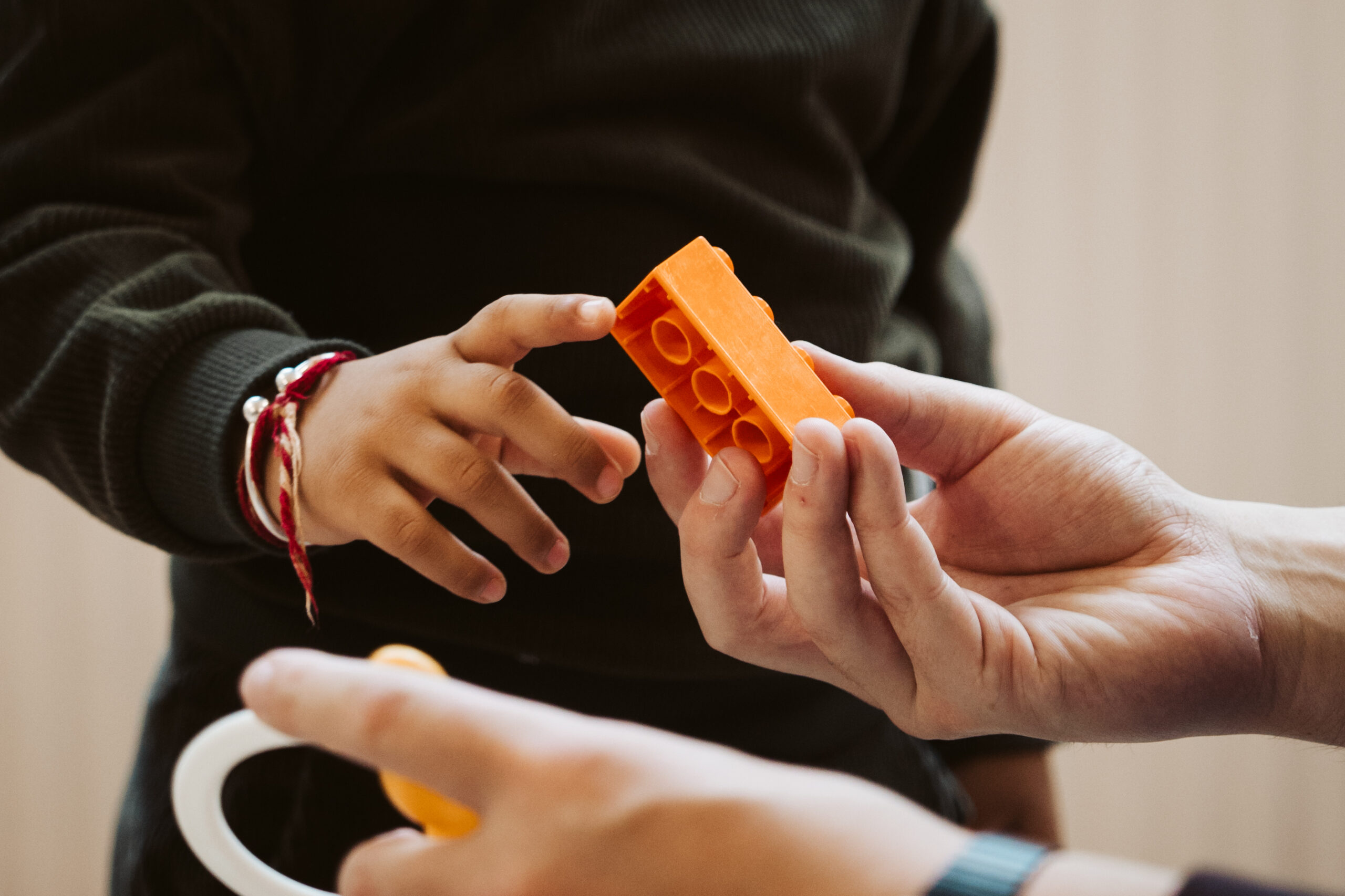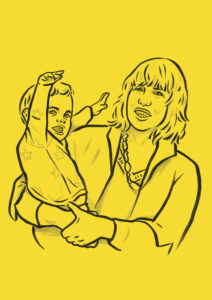“We’re all trying to think about how care works”
Interview with Alison Gopnik, Founder of The Social Science of Caregiving research project
Interview with Alison Gopnik, Founder of The Social Science of Caregiving research project
 Photo: Isolde Woudstra
Photo: Isolde Woudstra
In 2023, writer and psychology professor Alison Gopnik launched an ambitious interdisciplinary academic project to understand the science of care. The initiative is a partnership between Gopnik’s lab at the University of California, Berkeley, and the Center for Advanced Study in the Behavioral Sciences (CASBS) at Stanford University, USA, and involves researchers from around the world. It will seek to better understand the economic, philosophical, and psychological foundations of care and explore, in depth, how people understand caregiving relationships – a subject long absent from intellectual life and academic studies.

Alison Gopnik
In conversation with Michael Feigelson, CEO at the Van Leer Foundation, Gopnik talks about the biological mechanisms of care, why care has historically been ignored by researchers, and why supporting caregivers requires a re-envisioning of the social contract.
I wanted to ask you to start by elaborating on something you’ve said before: we don’t care for our children because we love them; we love them because we care for them. What did you mean by this?
Human babies rely on a much wider range of carers than babies of other animals do. So, as the great anthropologist Sarah Hrdy has pointed out, human babies are cared for by more than their biological mothers, but also fathers and others we call “alloparents”, including grandparents.
This means that something has to prime all the amazing emotions that lead us to care for people. There is lots of evidence showing that when you care for a baby, even if you didn’t give birth to the baby, you start having some of the brain patterns that you see in biological mothers. We care for them because they need care. We care, and that becomes love, and I think we underestimate how remarkable that is.
What do we parents get as a result of doing this care? Does caring for my daughter make me more sensitive, more able to understand what’s going on with her – and does that increased sensitivity show up in my relationships with other people or only with her?
Caregiving actually isn’t this kind of automatic, instinctual thing. It requires a lot of thought and reasoning and work. You have to figure out: “Okay, what does this person I’m caring for need? And is what they need what they want? If it isn’t, which should I give them?” Those are really hard things to figure out, especially when dealing with a very emotionally volatile 3-year-old, and it requires a lot of cognitive work.
As for your second question – it’s terrific, and one we don’t have many answers to. Intuitively, it certainly seems as if these changes in the way that we interact with babies would be a model for how we care for people in general. But one of the things that we’ve been talking about is that we don’t know very much about the intelligence of caregiving.
“Caregiving actually isn’t this kind of automatic, instinctual thing.”
Caring for kids takes so much intelligence. It’s so central to the species. It’s so universal. Then why don’t we collectively seem to care about parents?
There was a psychology paper that came out recently – it was looking at what kinds of things people think are motivating and meaningful. And what this paper found was that caring for other people was the most meaningful thing for everybody across many different cultures.
Why did this show up only just now? Because no one had asked the question before. Care is invisible. And, you know, there’s a fairly obvious explanation for why care has been so absent in research. Think about it: is there anything the people who have been doing this research have in common that might explain things?
They’re tall? So tall they can’t see children?
Very tall.
Another reason why care has been left out is that when you look at the broad framework of, say, politics and economics there is a focus on what people in economics call utility theory. The idea is that you have a goal, you do things to achieve that goal, and that will make you better off. Or, you have two people, they both have goals they’re trying to achieve. How do they negotiate so that they can both achieve their goals? All of economics and a lot of political science is based on this principle.
But of course, what’s interesting about care is sort of the opposite of that. Care is a situation in which you have some people who have more resources and power than others. But the result is that those with more power (the caregivers) are trying to help the ones with less power (the recipients) become more powerful. This is instead of the caregivers trying to become more powerful themselves, which is how we normally operate according to the utility theory.
The fact that it’s got that structure makes it so different from everything else that people have thought about as the way that human relationships work.
Are there any other reasons why care has not been elevated and valued, in your opinion?
From a policy perspective, I think part of the problem with care in our large, post-industrial society is that we manage most things with markets. And then there are some things that we
“So much care is local and personal, and we don’t have many mechanisms in place to support these close relationships.”
think we can’t buy and sell, like education and healthcare. We think the state should provide that for people.
Well, care doesn’t really fit into either of those frameworks. Now it is true that we have markets for care, and the state provides support for care. But neither of those really captures what’s going on with care.
So much care is local and personal, and we don’t have many mechanisms in place to support these close relationships. What we need to do is think about how to support these relationships that are really important in care. Of course there are obvious things, like paid maternity and paternity leave and family allowances or child tax credits. But they are just the beginning.
Let’s talk more about your new project: The Social Science of Caregiving. What is it?
It started out with a series of meetings of academics from lots of different disciplines including economists, political scientists, policymakers, psychologists and computer scientists. We’re all trying to think about how care works. And how could this knowledge change the way that we think about care? And our policies supporting caregivers?
How does this build on prior research on attachment styles between children and parents?
The people who’ve been studying much of this for a long time have all been working within the theoretical framework of attachment theory. And attachment theory has greatly contributed to our understanding of care.
But it focuses on whether or not children are securely or insecurely attached and the consequences of that. There is little looking at what is going on under the hood, or what is going on in the children’s own conception of themselves or others.
A lot of the people who are doing this new research start with the attachment framework, but then expand it to include what we’ve learned in cognitive science and neuroscience. They are taking the basic idea of attachment – that caregiving makes a difference – trying to flesh that out and discovering that there’s far more flexibility and complexity than we realise.
And this idea that caregiving makes a difference, can it be conceived as universal?
We know that societies care in really different ways and have different conceptions of what it is and how it works. And yet, there seems to be a shared biological core of care.
“We see that care crosses a lot of political and social divides.”
So, one thing we want to try and figure out is how this plays out across different cultural traditions in different parts of the world at different times. In policy terms, we see that care crosses a lot of political and social divides; regardless of your ideology, people can agree that care matters.
All references can be found in the PDF version of this article.
See how we use your personal data by reading our privacy statement.
This information is for research purposes and will not be added to our mailing list or used to send you unsolicited mail unless you opt-in.
See how we use your personal data by reading our privacy statement.